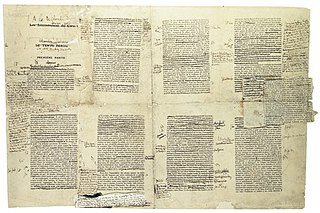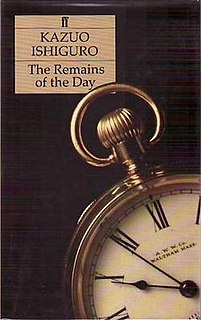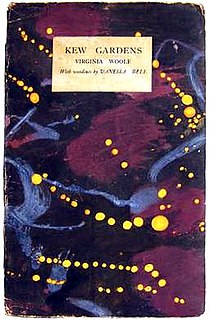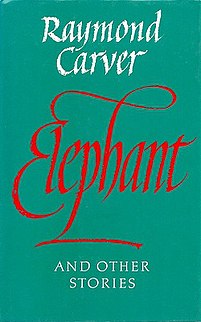Related Research Articles
A first-person narrative is a mode of storytelling in which a storyteller recounts events from their own point of view using the first person such as "I", "us", "our" and "ourselves". It may be narrated by a first person protagonist, first person re-teller, first person witness, or first person peripheral. A classic example of a first person protagonist narrator is Charlotte Brontë's Jane Eyre (1847), in which the title character is also the narrator telling her own story, "I could not unlove him now, merely because I found that he had ceased to notice me".

In Search of Lost Time, first translated into English as Remembrance of Things Past, is a novel in seven volumes by Marcel Proust (1871–1922). It is his most prominent work, known both for its length and its theme of involuntary memory; the most famous example of this is the "episode of the madeleine", which occurs early in the first volume. It gained fame in English in translations by C. K. Scott Moncrieff and Terence Kilmartin as Remembrance of Things Past, but the title In Search of Lost Time, a literal rendering of the French, became ascendant after D. J. Enright adopted it for his revised translation published in 1992.

The Remains of the Day is a 1989 novel by the Nobel Prize-winning British author Kazuo Ishiguro. The protagonist, Stevens, is a butler with a long record of service at Darlington Hall, a stately home near Oxford, England. In 1956, he takes a road trip to visit a former colleague, and reminisces about events at Darlington Hall in the 1920s and 1930s.
Diegesis is a style of fiction storytelling that presents an interior view of a world in which:
- Details about the world itself and the experiences of its characters are revealed explicitly through narrative.
- The story is told or recounted, as opposed to shown or enacted.
- There is a presumed detachment from the story of both the speaker and the audience.
Narration is the use of a written or spoken commentary to convey a story to an audience. Narration is conveyed by a narrator: a specific person or unspecified literary voice, developed by the creator of the story, to deliver information to the audience, particularly about the plot. Narration is a required element of all written stories, with the function of conveying the story in its entirety. However, narration is merely optional in most other storytelling formats, such as films, plays, television shows, and video games, in which the story can be conveyed through other means, like dialogue between characters or visual action.
A frame story is a literary technique that serves as a companion piece to a story within a story, where an introductory or main narrative sets the stage either for a more emphasized second narrative or for a set of shorter stories. The frame story leads readers from a first story into one or more other stories within it. The frame story may also be used to inform readers about aspects of the secondary narrative(s) that may otherwise be hard to understand. This should not be confused with narrative structure or character personality change.

Winner Take Nothing is a 1933 collection of short stories by Ernest Hemingway. Hemingway's third and final collection of stories, it was published four years after A Farewell to Arms (1929), and a year after his non-fiction book about bullfighting, Death in the Afternoon (1932).

Green Shadows, White Whale is a 1992 novel by Ray Bradbury. It gives a fictionalized account of his journey to Ireland in 1953-1954 to write a screen adaptation of the novel Moby-Dick with director John Huston. Bradbury has said he wrote it after reading actress Katharine Hepburn's account of filming The African Queen with Huston in Africa. The title itself is a play on Peter Viertel's novel White Hunter, Black Heart, which is also about Huston.
"The Invisible Japanese Gentlemen" is a short story written by Graham Greene in 1965.

"The Signal-Man" is a first-person horror/mystery story by Charles Dickens, first published as part of the Mugby Junction collection in the 1866 Christmas edition of All the Year Round.

"Description of a Struggle" is a short story by Franz Kafka. It contains the dialogues "Conversation with the Supplicant" and "Conversation with the Drunk"

Betrachtung is a collection of eighteen short stories by Franz Kafka written between 1904 and 1912. It was Kafka's first published book, printed at the end of 1912 in the Rowohlt Verlag on an initiative by Kurt Wolff.

Rameau's Nephew, or the Second Satire is an imaginary philosophical conversation by Denis Diderot, written predominantly in 1761–62 and revised in 1773–74.

"Kew Gardens" is a short story by the English author Virginia Woolf.

Elephant is a collection of short stories by American writer Raymond Carver published in Great Britain, 1988. The stories in the collection were first published in the United States in Where I'm Calling From: New & Selected Stories (1988).

Fight Club is a 1996 novel by Chuck Palahniuk. It follows the experiences of an unnamed protagonist struggling with insomnia. Inspired by his doctor's exasperated remark that insomnia is not suffering, the protagonist finds relief by impersonating a seriously ill person in several support groups. Then he meets a mysterious man named Tyler Durden and establishes an underground fighting club as radical psychotherapy.
Personal narrative (PN) is a prose narrative relating personal experience usually told in first person; its content is nontraditional. "Personal" refers to a story from one's life or experiences. "Nontraditional" refers to literature that does not fit the typical criteria of a narrative.
"The Diamond Maker" is a short story by H. G. Wells, first published in 1894 in the Pall Mall Budget. It was included in The Stolen Bacillus and Other Incidents, the first collection of short stories by Wells, published in 1895.

The Nature of a Crime is a collaborative novel written and published in 1909 by authors Joseph Conrad and Ford Madox Ford. The text did not acquire acclaim until after Conrad's death in 1924, when Ford brought the text to light in his essay "Joseph Conrad: A Personal Remembrance". The Nature of a Crime is the last of three books written by Conrad and Ford.

Redeployment is a collection of short stories by American writer Phil Klay. His first published book, it won the 2014 National Book Award for Fiction and the National Book Critics Circle's 2014 John Leonard Award given for a best first book in any genre.
References
| Wikisource has original text related to this article: |